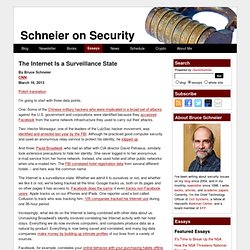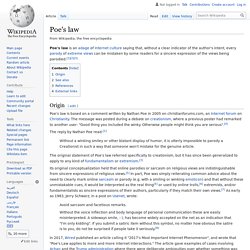

The IPython Notebook — IPython. First Parallella User Created Video. Parallella. —————————————————————————–Help: Q: Where can I go to get help with Parallella?

Journal of Machine Learning Research Homepage. Tim O'Reilly: The World's 7 Most Powerful Data Scientists.
Best Linux Software. On this page, you will find the best Linux applications that have been carefully tested and selected for all your needs.

We've taken the effort to categorize these Linux applications and picked only those we believe to be the best, and which will most likely be useful to you. Of course, since we're talking Linux - these are also all free. This page updates frequently, so check back often! The original open source virus scanner. A version of AVG's Virus Scanner for Linux. Powerful virus protection with a free license for personal use. A graphical interface for the UFW firewall. Linux software to make managing iptables easier.
A good quality firewall with graphical interface. A capable disk recovery toolkit. A utility to recover lost partitions. A Linux software utility that extracts data from damaged areas and replaces dd. A video, document, and archive recovery utility. Get Rid Of Facebook Annoyances With These 4 Great Firefox Add-Ons. Advertisement Facebook is an incredibly polarized social network — some people love it and check in on an hourly basis while others have shunned it due to its security issues and violations of user privacy.

Many users fumble around with Facebook’s ever-changing interface and many reject what Facebook has become: ad-ridden and spammy. Is there any hope on the horizon? If you’re on Firefox, there are a few add-ons you can use to change the Facebook experience. These are a few you might not have seen in our popular Firefox manual. Using Chrome? Social Fixer Social Fixer is an awesome browser add-on that allows you to customize your Facebook experience in ways you didn’t think possible. Some wonderful things you can do with Social Fixer: get a tabbed news feed for organized browsing, apply visual themes to Facebook, use advanced filtering on your feeds, mark posts as read, highlight comments, use a friend tracker (notification of unfriends), enhanced navigation, and so much more.
Security. The Internet Is a Surveillance State. By Bruce Schneier CNNMarch 16, 2013 Polish translation I'm going to start with three data points.

One: Some of the Chinese military hackers who were implicated in a broad set of attacks against the U.S. government and corporations were identified because they accessed Facebook from the same network infrastructure they used to carry out their attacks. Two: Hector Monsegur, one of the leaders of the LulzSac hacker movement, was identified and arrested last year by the FBI. Although he practiced good computer security and used an anonymous relay service to protect his identity, he slipped up. And three: Paula Broadwell, who had an affair with CIA director David Petraeus, similarly took extensive precautions to hide her identity.
The Internet is a surveillance state. Increasingly, what we do on the Internet is being combined with other data about us. Facebook, for example, correlates your online behavior with your purchasing habits offline. Sure, we can take measures to prevent this. Poe's law. Confusion of parody and sincere expression Poe's law is an adage of Internet culture stating that, without a clear indicator of the author's intent, it is impossible to create a parody of extreme views so obviously exaggerated that it cannot be mistaken by some readers for a sincere expression of the views being parodied.[1][2][3] The original statement, by Nathan Poe, read:[1] Without a winking smiley or other blatant display of humor, it is utterly impossible to parody a Creationist in such a way that someone won't mistake for the genuine article.

Origin[edit] Poe's law is based on a comment written by Nathan Poe in 2005 on christianforums.com, an Internet forum on Christianity. The post was made during a debate on creationism, where a previous poster had remarked to another user: "Good thing you included the winky. In part, Poe was simply reiterating common advice about the need to clearly mark online sarcasm or parody (e.g. with a smiling or winking emoticon) to avoid confusion.
In Sweden, Taking File Sharing to Heart. And to Church.